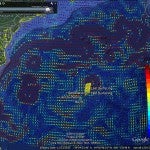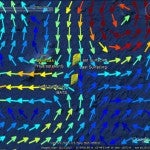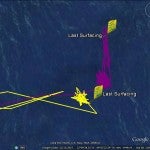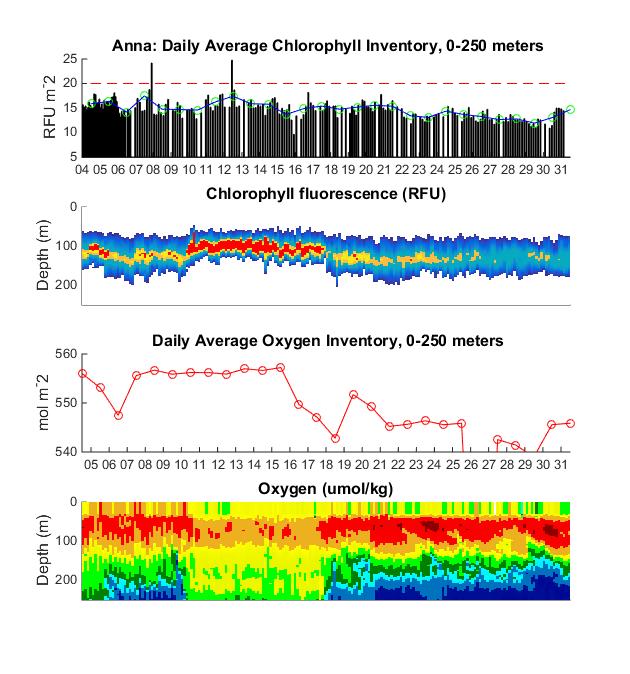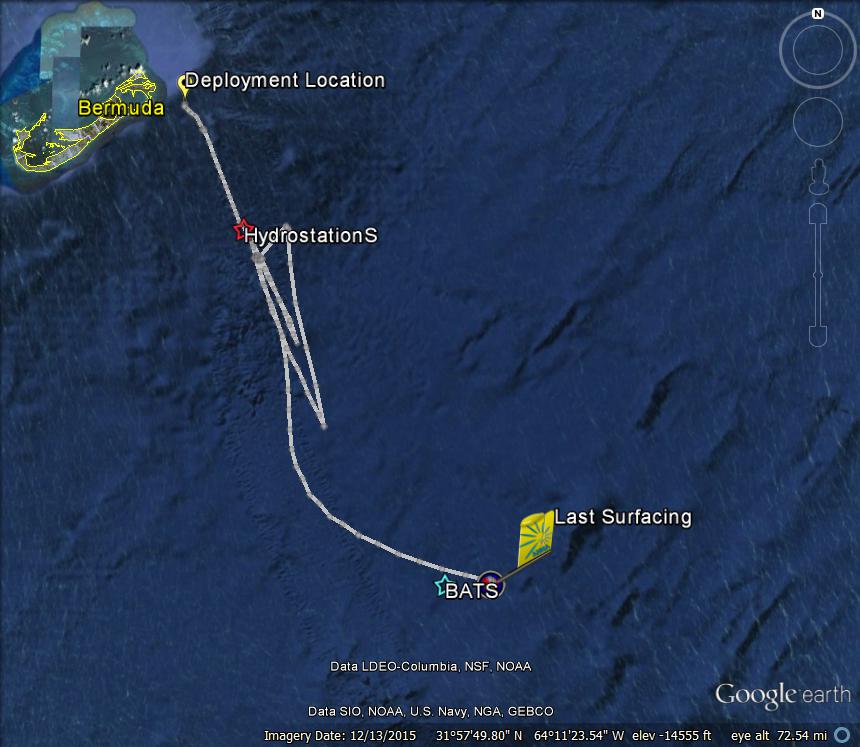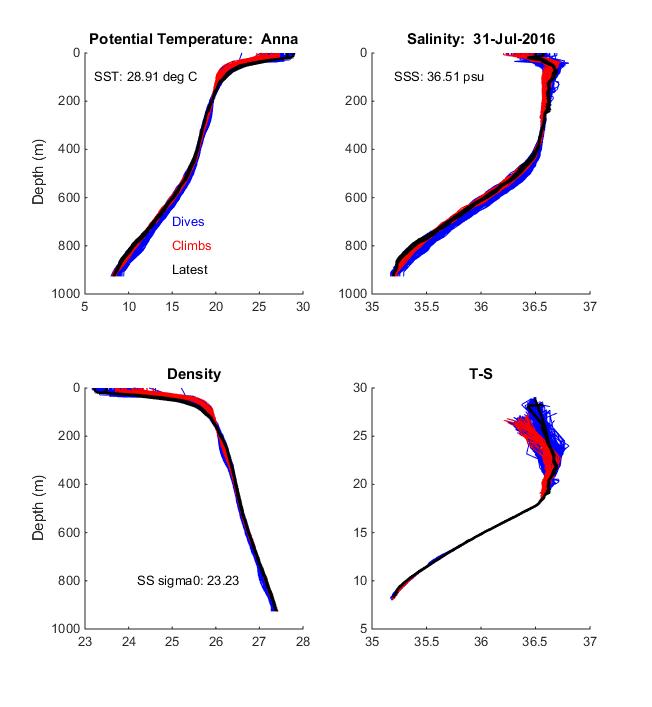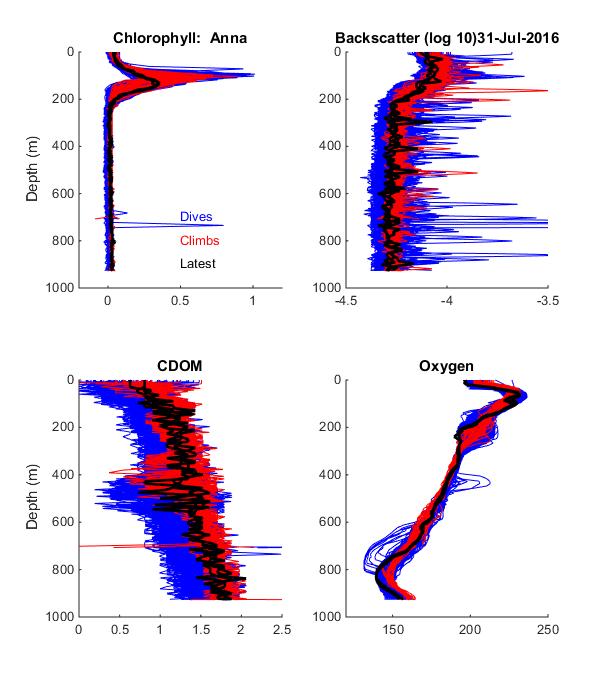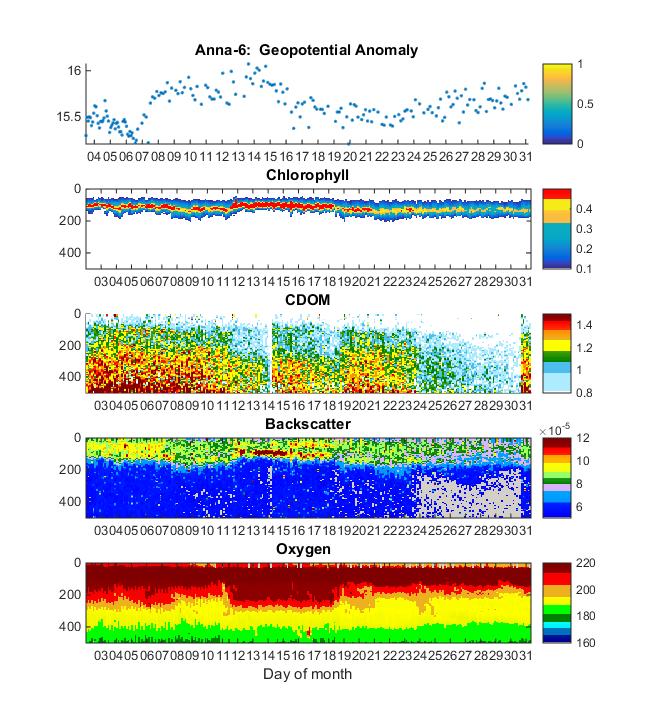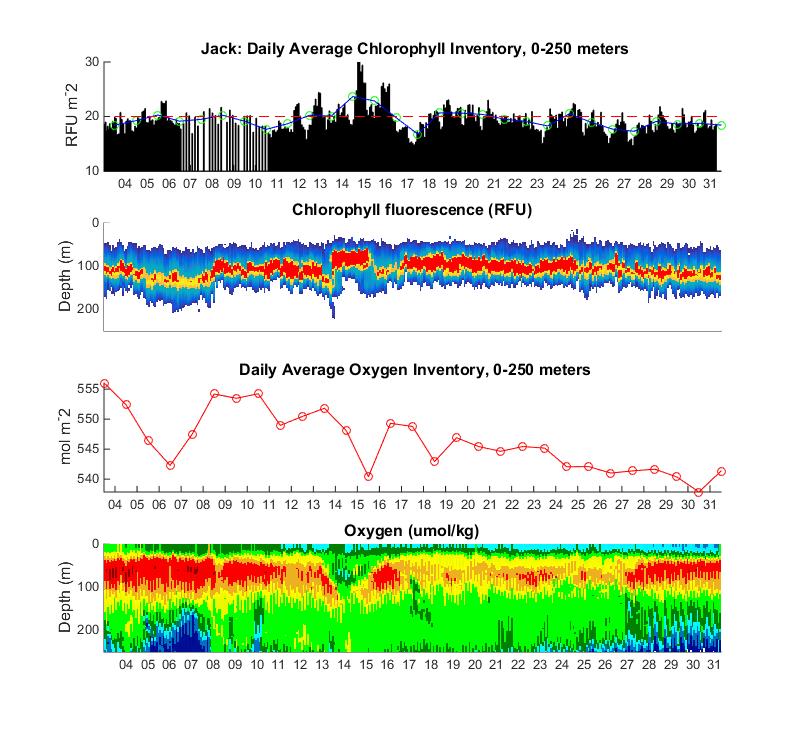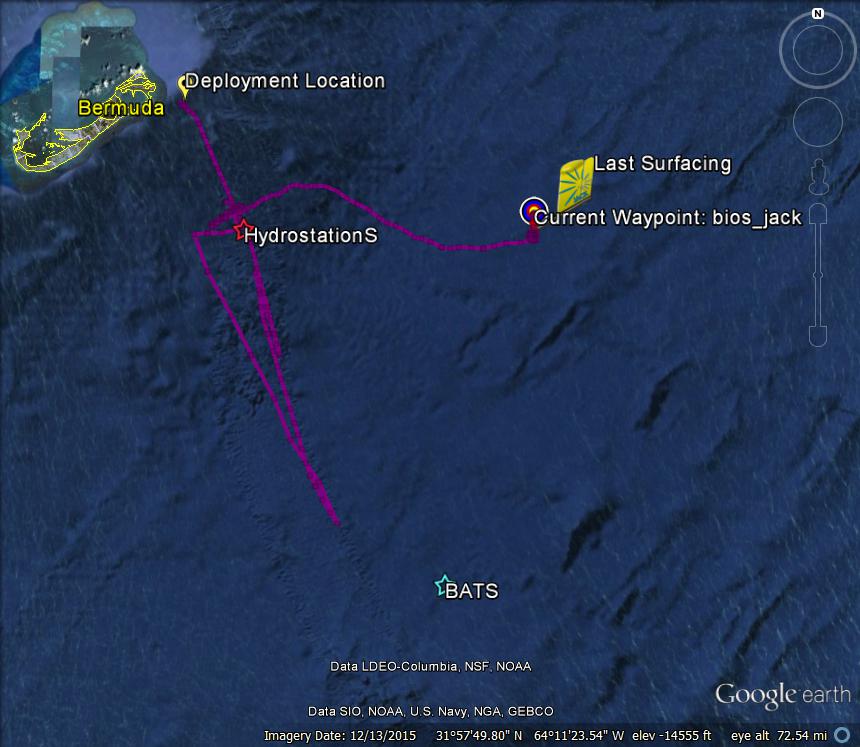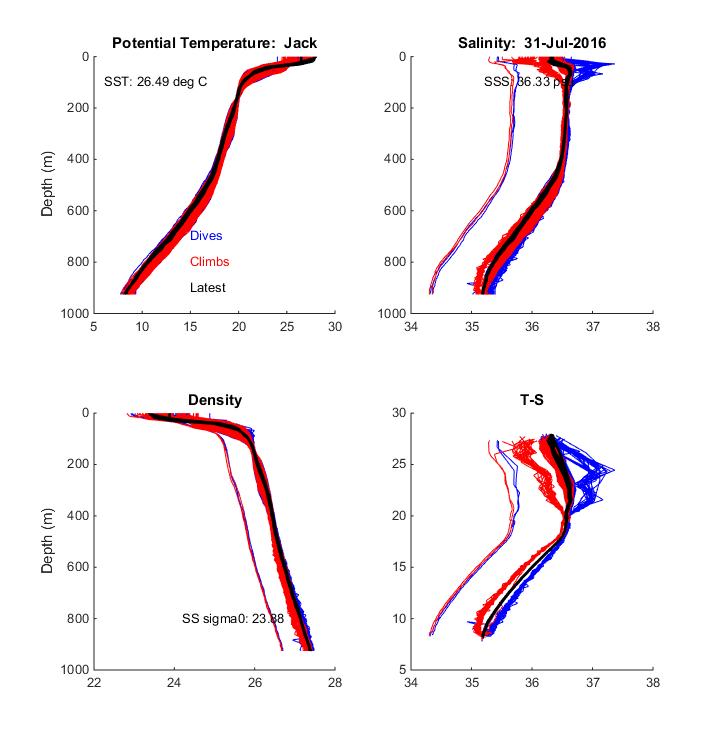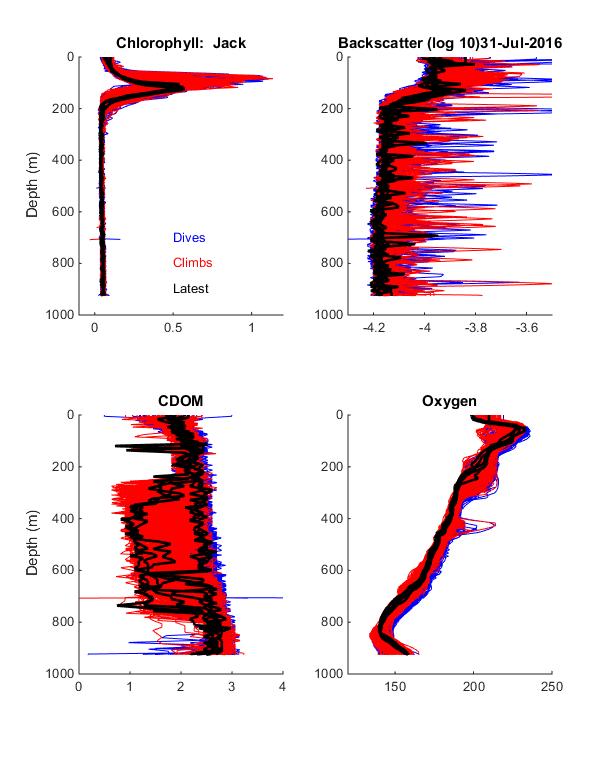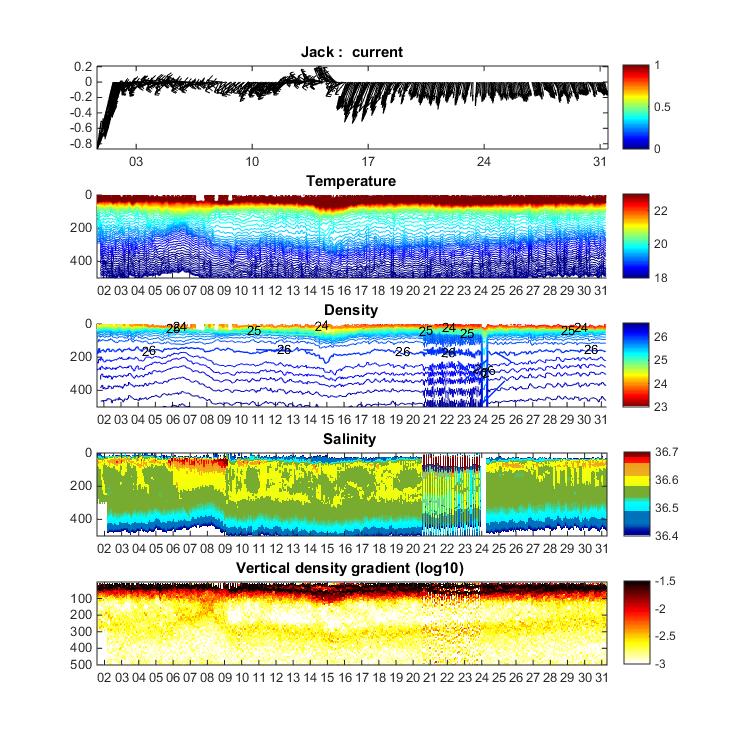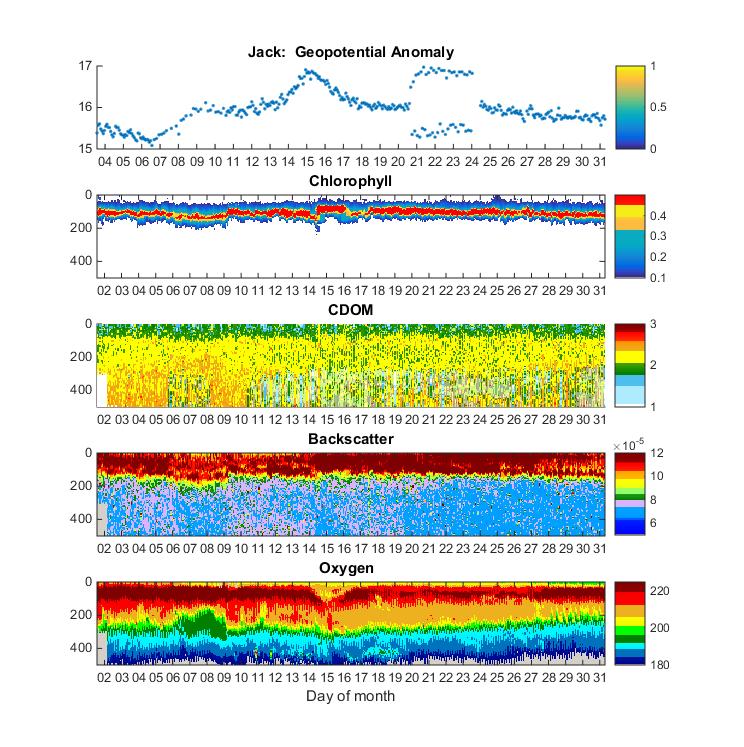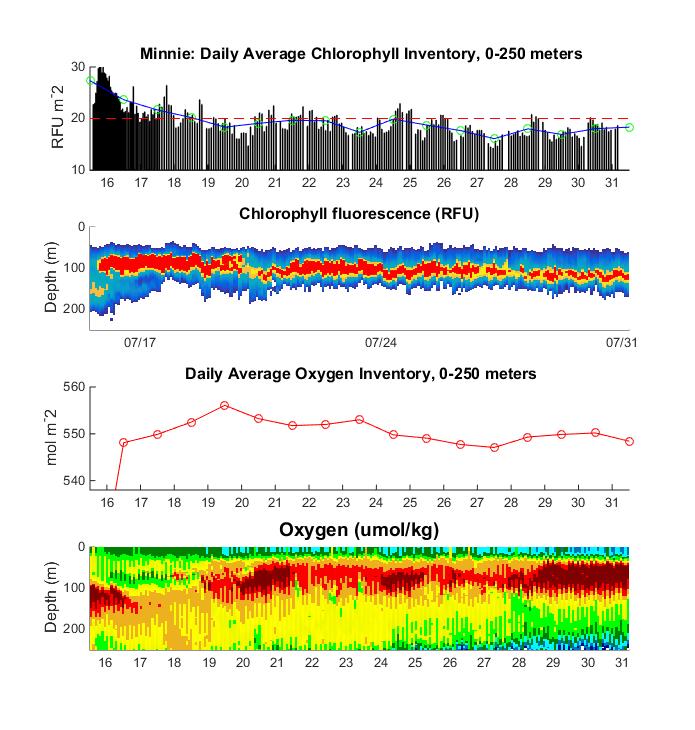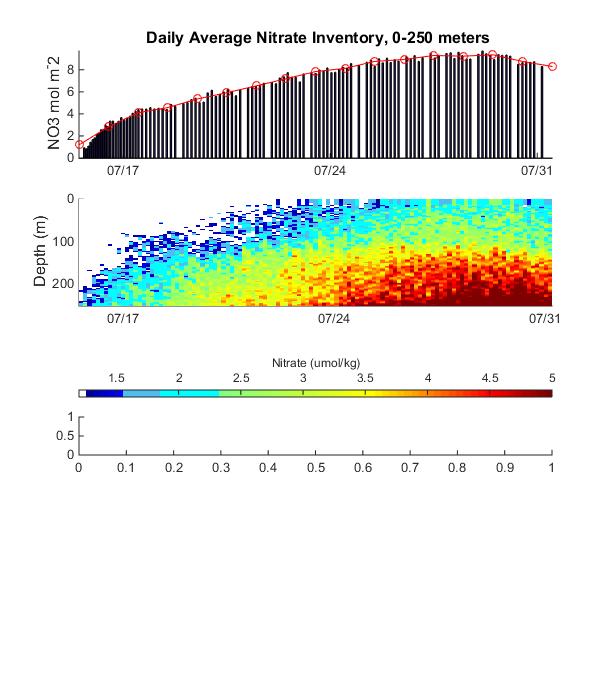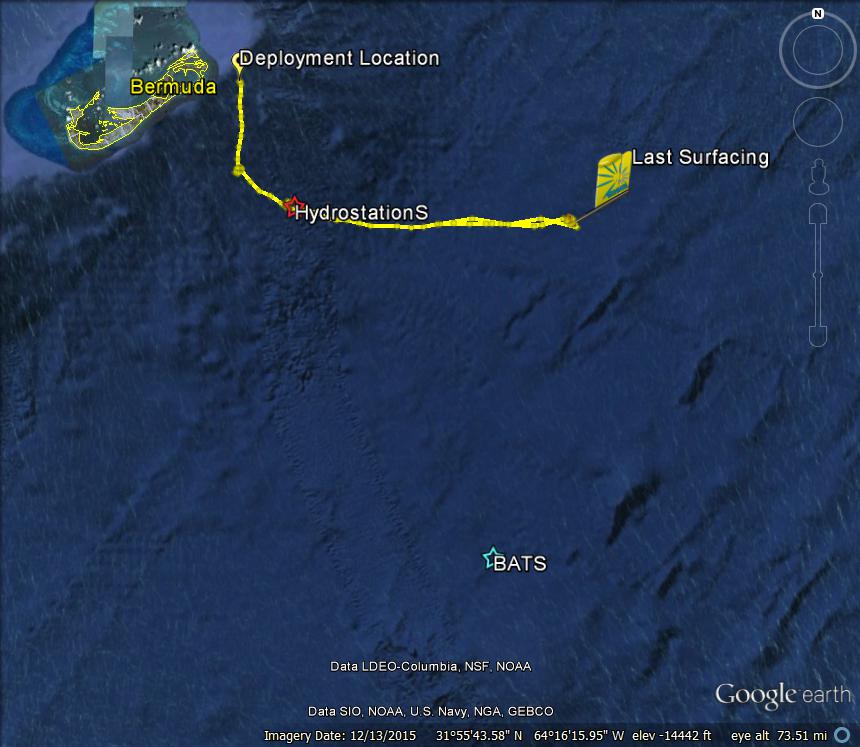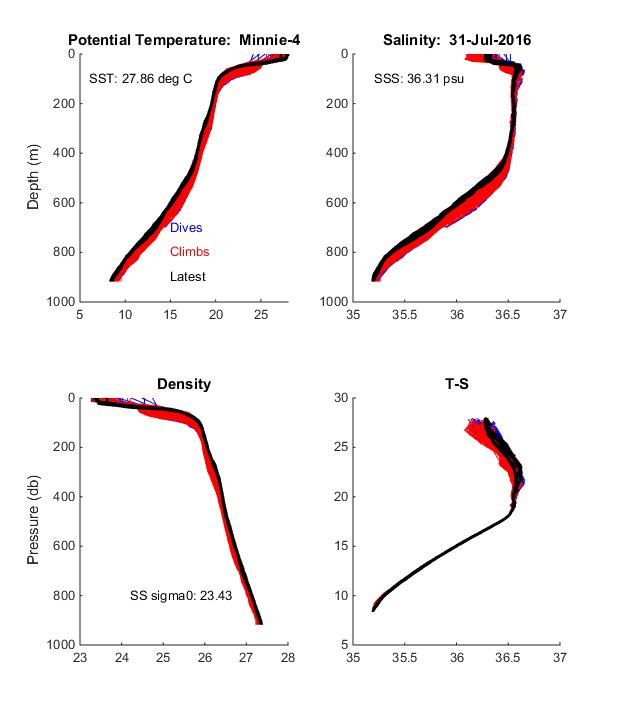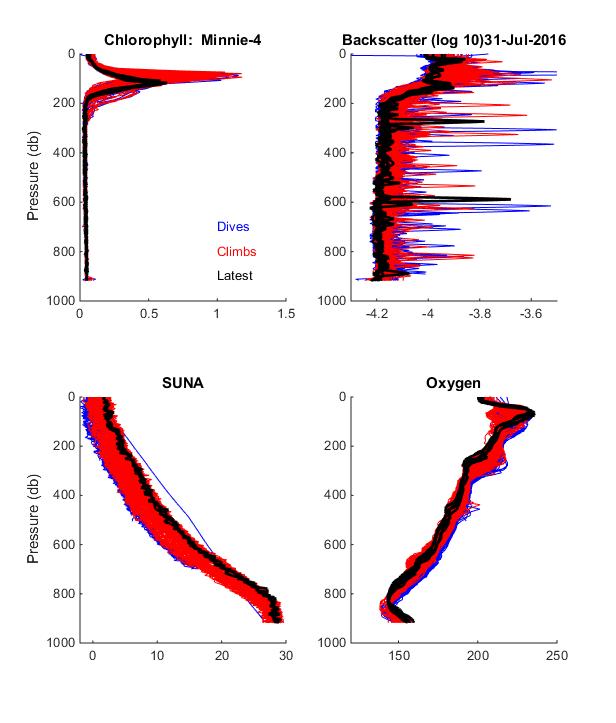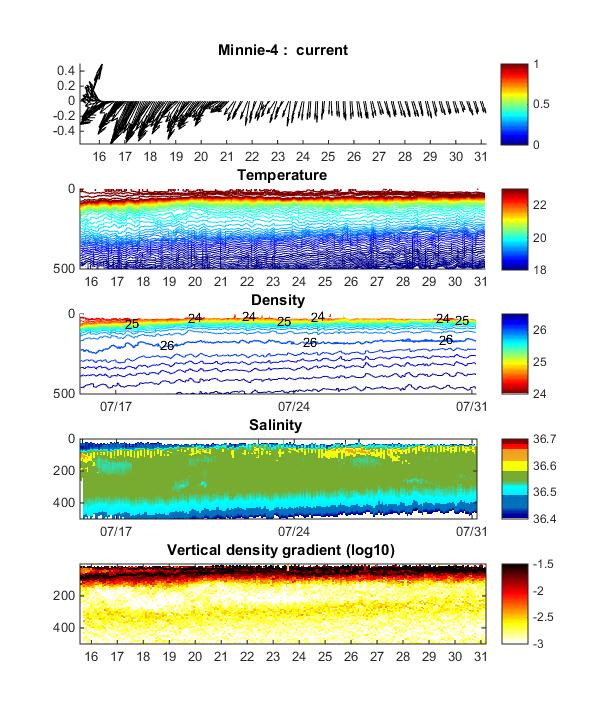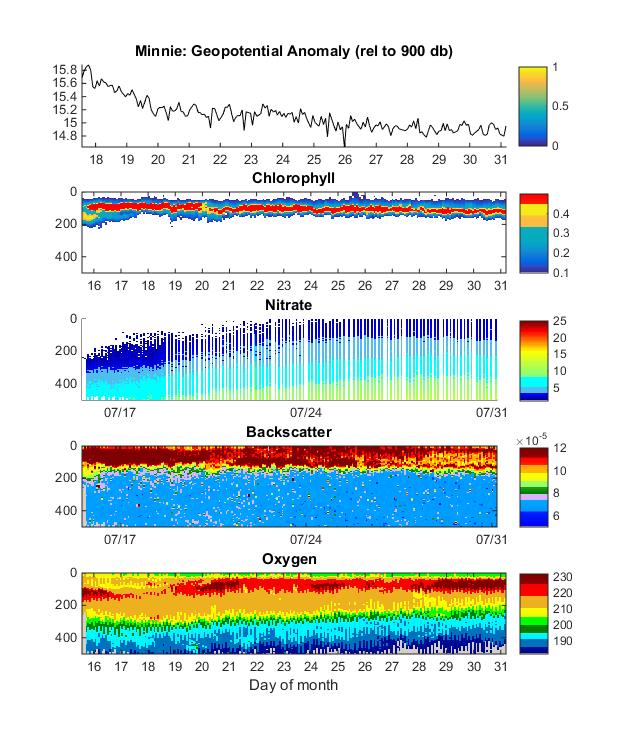All three gliders are presently in the water measuring water column conditions and chronicling inventories of chlorophyll, dissolved oxygen and nitrate. Principal objectives of this summer mission are to gain experience with the SUNA nitrate sensor and acoustic Doppler profiler (ADP), to continue high-resolution time series profiling records near the BATS site, and to simultaneously measure conditions about 60 km to the northeast as a strong cyclonic eddy approaches. As of July 31, the center of the cyclone is still >100 km from Jack and Minnie. The mission will end before the feature arrives.
Anna is holding station at BATS carrying CTD, oxygen optode and ECO puck (chlorophyll, backscatter, CDOM) sensors. Since arriving at this location on July 19, current speeds, chlorophyll and backscatter have all declined.
Jack is ~60 km to the northeast, carrying the same suite of sensors, plus an Explorer DVL 600 kHz acoustic current profiler. Different sampling strategies are being tested: first, holding station (flying around a 0.5km box) and now ping-ponging back and forth between 2 points ~6 km apart. The conductivity sensor showed signs of biofouling July 21-24, but cleared itself and has been working properly since. This site is on the outer edge of the cyclonic eddy, current velocities, chlorophyll and oxygen inventories have all declined.
Minnie is carrying the basic suite of science sensors plus a Submersible Underwater Nitrate Analyzer (SUNA), and is keeping station very close to Jack’s location. This will enable intercomparisons of the gliders’ sensors, and combine nitrate and velocity profiles at the edge of the eddy.
- Large-scale ocean circulation, 27 July 2016.
- Regional-scale ocean circulation, 27 July 2016.
- Location of Jack and Minnie on 29 July 2016.
Anna Data
Jack Data
Minnie Data


